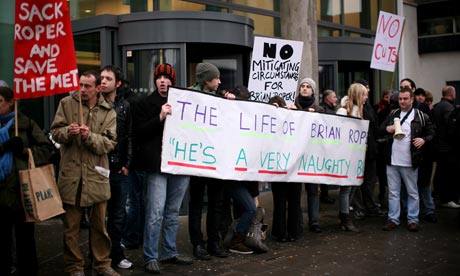‘කොළඹ නගර සංවර්ධන විවාදය‘
“නාගරික නවීකරණය,“ සිහින පුරවර ගොඩ නැංවීම සහ පුරවැසියන්ට පොඩි එවුන් ලෙස සැළකීම:
ජේන් ජේකබ්ස් ගේ සැළසුම් දර්ශනයෙන් පාඩම්
ජේන් ජේකබ්ස් ගේ සැළසුම් දර්ශනයෙන් පාඩම්
ගොඩනැගිලි පිරුණු පුරවරයක කටයුතු කරන විට මස් කපන පොරොවකින් කොටාගෙන කොටාගෙන යන්න වෙනව. මම දිගටම ඉදිකිරීම් කරගෙන කරගෙන යනව. එය නවත්වන්න කළ හැකි හොඳම දේ නුඹලා කරපල්ලා.
රොබට් මෝසස් ගේ කියුමක්
සිහින නගරයක් සැළසුම් කිරීම පහසුය; ජීවමාන නගරයක් යළි ඉදිකිරීමට පරිකල්පනාව අවශ්ය කෙරෙයි.
ජේන් ජේකබ්ස්

ජේන් ජේකබ්ස් White Horse තැබෑරුමේදී 1961, මෑන්හැට්න්, නිව්යෝක් පුරය
‘කොළඹ නගර සංවර්ධන විවාදය‘ට මැදිහත් වෙමින්, නගර සංවර්ධනයේදී අඩු ආදායම් ලාභී අසල්වැසි ප්රජාවන් සම්බන්ධයෙන් ගත යුතු එළඹුම පැහැදිළි කරගනු වස් සහ පොදුවේ නගර සංවර්ධනය පිළිබඳ අපගේ සාකච්ඡාව සරු එකක් බවට පත්කිරීමට නම් අප ඊට පදනම් විය හැකි විග්රහයක් නගර සැළසුම්කරණය පිළිබඳ ජාත්යන්න්තරව පැවතී ඇති සාකච්ඡාව ඇසුරෙන් සම්පාදනය කරගත යුතුය යන අදහස මම මීට පෙර ඉදිරපත් කළෙමි (බලන්න, “යහපත් නගරය ප්රජාතන්ත්රවාදය, විවිධත්වය සහ දුප්පතුන්ගේ අයිතීන් සුරකියි” රාවය, 2011 ඔක්තෝබර් 30). ඒ සඳහා දහනවවැනි සියවසේ අගභාගයේ ඇරඹී විසිවැනි සියවසේ අගභාගය දක්වා ලොව නාගරික සංවර්ධනයේ අධිපති මතවාදයව පැවැති “නාගරික නවීකරණය“ (urban renewal) ට පදනම්වන නවීකාරක සංකල්පීකරණයන් ප්රබලව අභියෝගයට ලක්කළ ජේන් ජේකබ්ස් ගේ ජන හිතකාමී නගර සැළසුම්කරණ අදහස් සළකා බැලිය යුතු බව මම යෝජනා කළෙමි. මෙම ලිපියෙන් මා අදහස් කරන්නේ එම කටයුත්තට මුල පුරන්නටය.
නමුත් ඊට පෙරවදනක් ලෙස “දකුණු ආසියානු නගර වාසයට සුදුසු බවට පත්කිරීම: අතීතයෙන් පර්යාලෝකයක්” යන මැයෙන් රාමචන්ද්ර ගුහා මෑතදී කොළඹ දී පැවැත්වූ නීලන් තිරුචෙල්වම් අනුස්මරණ දේශනයෙහිදී, පළ කළ මූලික අදහස් කිහිපයක් මෙහිදී සඳහන් කරන්නට කැමැත්තෙමි.
පැට්රික් ගෙඩෙස් ගේ නගර සැළසුම් දර්ශනය
එම මාතෘකාවට ගුහා ප්රවිෂ්ඨ වූයේ මෙසේය: “දකුණු ආසියාවේ වෙනත් බොහෝ නගර මෙන් කොළඹ නගරයද මෑත කාලයේදී අත්දුටු කඩිනම් වර්ධනය එහි සමාජීය සහ පරිසරමය නිර්මිතය මත බර පටවා ඇත. මෙම වර්ධනය පුරවැසියන් සහ සැළසුම්කරුවන් යන දෙපිරිසම හමුවේ මතුකරන ප්රශ්න ගණනාවකි. ඒ සියල්ලේ හරය වන්නේ නගර වැසියන්ගේ ජීවිත වචනයේ සියලු අර්ථයෙන් වාසයට සුදුසු බවට පත් කරන්නේ කෙසේද? යන්නයි.“ මෙයට පිළිතුරු සොයන්නට ගුහා ඉන්දියාවේ නගර සැළසුම් කෙරෙහි මහත් බලපෑමක් කළ ස්කොට් ජාතික නගර සැළසුම් ශිල්පී පැට්රික් ගෙඩෙස් අනුදත් මූලධර්ම පිළිබඳ සාකච්ඡාවකට යොමුවෙයි. 1921 දී කොළඹ නගරය සඳහා පළමු සැළැස්ම සකස් කළේ ද ගෙඩෙස් බවත් ඔහුගේ අරමුණ වූයේ කොළඹ “පෙරදිග උද්යාන නගරය” බවට පත්කිරීම බවත් සඳහන් ය. ගුහා සඳහන් කළ පරිදි ගෙඩෙස් සම්ප්රදායට ගරුකළ නමුදු අතීතයට යොමුවූ ප්රතිගාමියෙකු නොවීය. එමෙන්ම ඔහු කාන්සාවෙන් යුතු රොමෑන්ටික්වාදියෙක් හෝ උග්ර නවීකාරකයෙකුවත් නොවීය.

ගෙඩෙස්
ගුහා දැක්වූ පරිදි, ගෙඩෙස්ගේ නගර සැළසුම් තුළින් දිවෙන කේන්ද්රීය තේමා තුනක් වීය. ඒවා නම් සොබා දහමට ඇති ගරුත්වය, ප්රජාතන්ත්රවාදයට ඇති ගරුත්වය සහ සම්ප්රදායට ඇති ගරුත්වයයි. ප්රජාතන්ත්රවාදයට වාදයට ගරු කිරීමෙහි ලා ගෙඩෙස් අවධාරණය කළ කරුණක් වූයේ නගර වර්ධනයෙහි ලා පුරවැසි සහභාගීත්වය තිබීමේ අවශ්යතාවයි. ප්රජාතන්ත්රවාදී නගර සැළසුම්කරුවා අවවරප්රසාදිත කණ්ඩායම්වල අවශ්යවතා කෙරෙහි විශේෂ අවධානයක් යොමු කළ යුතුය. ගෙඩෙස්ගේ ප්රජාතන්ත්රීය ඉවෙහි තව පැත්තක් වූයේ නගරය ‘වැඩි දියුණු‘ කිරීම සඳහා හෝ මෝටර්රිය පදවාගෙන යා හැකිවනු වස් මහා මාර්ග ඉදිකිරීම සඳහා ගොඩනැගිලි අමනෝඥ ලෙස විනාශ කිරීමට ඔහු තුළ වූ විරුද්ධතාව යි. පැට්රික් ගෙඩෙස් ගේ ඉහත අදහස් නගර සංවර්ධනය පිළිබඳ අපගේ වත්මන් අදහස් යලි සිතා බැලීමට අපට කැඩපතක් සපයයි.
පැට්රික් ගෙඩෙස් ගේ ප්රජාතන්ත්රීය ඉව යනුවෙන් මා හැඳින්වූ දෙයට මුල්විය හැකි දර්ශනයක් පුලුල් සහ ක්රමානුකූල ලෙස වර්ධනය කිරීම අපට දක්නට ලැබෙන්නේ අපගේ මෙම ලිපියේ කථා නායිකාව වන ජේන් ජේකබ්ස් ගේ ලිය කියවිලි තුළය. ජේකබ්ස් මෙම අදහස් වර්ධනය කරන්නේ ගෙඩෙස් ගේ ඉහත සදහන් නොවූ සමහර අදහස් ද අයත් වන බව පෙනෙන, ඇමෙරිකාවේ 1950ස් ගණන්වනවිට බලගතු මතවාදයක් බවට පත්වූ “නාගරික නවීකරණය‘ (urban renewal) යනුවෙන් හඳුන්වනු ලැබූ සැළසුම් ගුරුකුළයේ අදහස් තියුණු විචාරක්ෂියට ලක් කරමිනි. “නාගරික නවීකරණය“ පිළිබඳ කතා කිරීමට පෙර ජේන් ජේකබ්ස් කෙටියෙන් වුව හඳුනා ගැනීම වැදගත් යැයි සිතමි. මා පහත ඉදිරිපත් කරන්නේ ජේන් ජේකබ්ස් පිළිබඳ සාහිත්යයෙන් සහ ඇය රචනා කළ පොත් සහ ලිපි ලේඛන ඇසුරෙන් ලබා ගත් තොරතුරු සහ අදහස් ය.
ජේන් ජේකබ්ස්: නාගරික දාර්ශනිකාව සහ ක්රියාකාරිකාව
 ජේන් ජේකබ්ස්
ජේන් ජේකබ්ස්
ජේන් ජේකබ්ස් හැඳින්වීමට යොදාගැනෙන, ‘ඇය පුරාවෘත්තයක් බවට පත් නාගරික දාර්ශනිකාවක, නාගරික කල්පනාවිහාරිකාවක ( urban visionary) නගර විඥනියක (urbanist), ලේඛිකාවක සහ නාගරික ක්රියාකාරිකාවක වූවාය,’ වැනි විරුදාවලීන් නගර සැළසුම්කරණය පිළිබඳ ඇගේ අදහස් ලොව දිනා ඇති කීර්තියට නිදසුන් ය.
ජේන් ජේකබ්ස් “නාගරික නවීකරණ“ ප්රතිපත්ති පිළිබඳ බලගතු විචාරයක් සම්පාදනය කළාය. ඇගේ මත නූතන සැළසුම්කරණය තුළ අතිමහත් වූ යලි සිතාබැලීමක් ඇති කළේය. පළමුවරට 1961 දී පළ කළ ‘ශ්රේෂ්ඨ ඇමරිකානු නගරවල මරණය සහ ජීවිතය‘ (The Death and Life of Great American Cities) නමැති කෘතියෙන් ඇය නගර සැළසුම්කරණය පිළිබඳ තම අදහස් ගොණු කොට පළ කලාය. ඇය එකළ අධිපති නාගරික සංකල්පය බවට පත්ව තිබු පරිපූර්ණ නාගරික ජනාවාස පිළිබඳ මනස් ඍෂ්ටි සහ පැවැති සැළසුම් මතියන් ගැඹුරින් ප්රශ්න කළා ය. එම නගර සැළසුම්කරණයේ මූලික ධර්මයනට පහර එල්ල කළාය, සිඳබිඳ දැමුවාය. සැළසුම්කරණය සහ වාස්තු විද්යාවේ පදනම් සොළවා ලමින් පළ කළ ඇගේ අදහස් කළ ඉමහත් බලපෑම 2006 දී ඇය මිය යනවිටත් එලෙසින්ම පැවතුණි.
 ජේන් ජේකබ්ස් (කන්නාඩි හැඳ) නිව්යෝක් නුවර පෙන් දුම්රිය ස්ථාන ගොඩනැගිල්ල බිඳ දැමීමට එරෙහිව දුම්රිය ස්ථානය ඉදිරිපිට පිකට් කරන ජනයා සමග, 1963 දී.
ජේන් ජේකබ්ස් (කන්නාඩි හැඳ) නිව්යෝක් නුවර පෙන් දුම්රිය ස්ථාන ගොඩනැගිල්ල බිඳ දැමීමට එරෙහිව දුම්රිය ස්ථානය ඉදිරිපිට පිකට් කරන ජනයා සමග, 1963 දී.
විසිවැනි සියවසේ මුල සිට, ජේන් ජේකබ්ස් තම අවධානය නගර සැළසුම්කරණය වෙත යොමුකළ 1950 ස් ගණන් දක්වා, අමෙරිකාවේ අධිපතිබවට පත්ව තිබුණේ ‘නාගරික නවීකරණය‘ යනුවෙන් හැදින්වුණු, ‘පර්යාය‘ නැතහොත් ‘පිළිවෙළ‘ පිළිබඳ සිහින දකින ගෘහ නිර්මාණ ශිල්පීන් සහ සැළසුම් කරුවන්ගේ දර්ශනයකි. මෙය නගර අලංකරණ ව්යාපාරය කි. එම දර්ශනයට අනුව පළමු තැන ජනයාට නොව ගොඩනැගිලිවළටය. අරමුණ තාර්කිකව, නගරයකෙසේ විය යුතුද යන්න පිළිබඳ වියුක්ත සංකල්පයකට ගැළපෙන පරිදි නගරය යළි තැනීම වන හෙයිනි. ජේන් ජේකබ්ස් මෙම දර්ශනය විවේචනය කිරීමට පෙරමුණ ගත්තේ ය. ස්වභාවික, මිශ්ර අසල්වැසි කලාප විකාශණය වීමට හානි කරමින් කෘතිම නාගරික භූ දර්ශණ නිර්මාණය කරන්නට සැළසුම් කරුවන් අතිශය බොහෝ විට උත්සාහ කළ බව විශ්වාස කළ ජේකබ්ස් අසල්වැසි කලාප වෙනුවෙන් සටනට ඉදිරිපත් වූවාය.
ජේන් ජේකබ්ස් ගේ උග්ර විවේචනයට එකළ සිටි සියලු ප්රධාන පෙළේ නගර සැළසුම් ශිල්පීන් වන ශ්රීමත් පැට්රික් ගෙඩෙස් (Sir Patrick Geddes) සහ එබනේසර් හවර්ඩ් (Ebenezer Howard) මෙන්ම වාස්තු විද්යාඥයන් වූ ල කොබිසියේ (Le Corbusier) සහ ලුවිස් මම්ෆෝර්ඩ් (Lewis Mumford) ද හසු වූහ. මොවුහු “නාගරික නවීකරණය‘ සඳහා උස් මහල් නිවාස ඉදිකිරීම ඉතා ඉහලින් පිළිගත්තෝ වූහ.
දුප්පත් අසල්වාසී සමූහයන්ගේ උසින් අඩු නිවාස බුල්ඩෝසර් කොට උස් මහල් නිවාස ඉදිකිරීම ජේන් ජේකබ්ස් සමාන කළේ 19 වැනි සියවසේ කායික වෛද්යවරුන් තුළ පැවති ලේ ඉවතට ගලායන්නට සැළැස්වීමෙන් රෝග සුවකළ හැකිය යන මිථ්යා විශ්වාසයට ය.
ඇගේ ලේඛණ නගර ඉදිකිරීම පිළිබඳ නැවුම්, ප්රජාමූලික එළඹුමක් වෙනුවෙන් සටන් කළාය. “නව නාගරිකවාදය“ ට එරෙහිව කුඩා පරිමාණ, වඩා සංවේදී නාගරික සැළසුම් එළඹුමක් සකස් කර ගැනීම යෝජනා කළ ඇය ඒ සඳහා අප ‘දේවල් පවතින්නේ කෙසේද?’ ‘මුඩුක්කු පිළිබඳ ගැටලුව කුමක්ද?’ යනාදිය, පවත්නා තත්වයන් යථාවාදීව දැකීම තුළින් තේරුම් ගැනීමට උත්සාහ කළ යුතු යැයි යෝජනා කළාය. ඇගේ මතය වූයේ අන් සියලු දේවලින් වියෝවූ සෞන්දර්ය එළඹුමකින් නගර සංවර්ධනය දෙස බැලිය නොහැකිය යන්නයි.


රොබට් මෝසස්
නිව්යෝක් නුවර නාගරික සරසවියේ ගුරුවරයෙකු වූ මාර්ෂල් බර්මන් “සියලු ඝණීභූත දේ වාතයට ද්රව වී යයි” (All that is solid melts into air) නමැති කාල් මාර්ක්ස් ගේ සුප්රසිද්ධ උධෘතය සිරස්තලය කරගත් තම කෘතියේ රොබට් මෝසස් වෙනුවෙන් පරිච්ඡෙදයක් වෙන් කොට ඇත. නිව්යෝක් පුරයේ බ්රොන්ක්ස් පේරුවේ ජනාකීර්ණ නිවාසවලින් ගහන වූ අසල්වැසි සමූහයන් විනාශ කරමින් සියලු විරෝධයන් නොතකා අධිවේගී මාර්ගයක් ඉදිකිරීමේ අපකීර්තිමත් කථාන්දරය මාර්ෂල් බර්මන් මෙසේ ලිවීමට එක් හේතුවක් වන්නේ බ්රොන්ක්ස් හි වාසය කළ ඔහුට තම කුඩා වියේදී අසරණ ලෙස විඳ දරා ගන්නට සිදු වූ මෙම අතිශය කටුක අත්දැකීම පිළිබඳ ආඛ්යානය ලොවට ලියා තැබීම අවශ්ය වීමයි. රාජ්ය බලයේ අනුග්රාහකත්වය ලබා අමෙරිකාව පුරා ක්රියාවට නැංවුනු මෝසස්ගේ මෙබඳු ක්රියා සිදු වූ හැම තැනම පාහේ අතිමහත් මහජන විරෝධයක් ජනිත කළ නමුත් අන්තිමේදී ඔහු නවත්වන්නට හැකිවන විට අවුරුදු 40 ක් ගතවී තිබුණි.

රොබට් මෝසස් ගේ නගර සංවර්ධන කටයුතු පිළිබඳ මාර්ෂල් බර්මන් තම කෘතියේ කරන සාකච්ඡාව තුළින්, නූතනත්ව ව්යාපෘතිය තුළ නවීකරණය පරම අභිලාෂය ලෙසින් ගත් කළ ඇතිවන මහා වියවුල තුළ සියල්ල වෙනස්වීමට ලක්වෙද්දී, අලුත් අලුත් දේ තැනීම සඳහා පවත්නා දේ විනාශ කිරීමට යොමු වෙද්දී, ‘අත්යවශය දේ සහ අර්ථාන්විත දේ යනු කුමක්ද?‘ යන්න පිළිබඳ සිතා බැලීමට අප යොමුකරයි.
මාර්ෂල් බර්මන්ට රොබට් මෝසස් නාගරික නවීකරණයේ බියකරු අඳුරු කලාපය නියෝජනය කළේ නම් ඔහු ජේන් ජේකබ්ස් දුටුවේ නූතනත්වය තුළ ජීවිතයේ අර්ථය සොයන ගැහැණුන්ට මිනිසුන්ට එම අරුත නගරයේ ඓන්ද්රිය සාමුහික ජීවිතය තුළ දැකීමට මඟ පෙන්වන නාගරික කල්පනාවිහාරිකාවක ලෙසිනි. දැන් අපි නගරය පිළිබඳ ජේකබ්ස් ගේ අදහස් දිශාවට හැරෙමු.
නගරය පරිසර පද්ධතියක් ලෙස
ජේකබ්ස් නගර දුටුවේ ඒවා ප්රයෝජනයට ගැණුනේ කෙසේද යන්නට අනුව කාලයාගේ ඇවෑමෙන් වෙනස් වනු ඇති, ඒවාටම හිමි තර්කණයක් සහ ගතිකත්වයක් ඇති, පරිසර පද්ධති ලෙසය. නගරයක සාරය ඇත්තේ අසල්වැසි කලාපවලය, තවද ඒවාට අවශ්ය තට්ටු ගෙවල් නොවේ, නිවාස ය. ජේකබ්ස් ට අනුව නගර වැසියන්ට නිවාස අවශ්ය වන්නේ එහි සිට වැඩට ගොස් යළි පැමිණ නිදාගන්නා, ඉතිරි කාලය ගෙවා දමන හුදු කාමර පේලි හෝ ගෙවල් ලෙස නොව වාසස්ථාන ලෙස ඔවුන්ට ඒවායේ සැබවින්ම වාසය කරන්නට අවශ්ය හෙයිනි. තට්ටු ගෙවල් රැකියා කලාප, විශේෂයෙන් ඔවුන් බොහෝ දෙනෙකු නිරතවන අනියම් රැකියා වලින් දුර බැහැර පිහිටා තිබේ නම් එහි පදිංචි වීමෙන් ඔවුනට ඇති ප්රයෝජනය කුමක් ද? මෙම අදහසින් කියැවෙන්නේ නාගරික නිවාස පිළිබඳ සිතීමේදී වැදගත් වන්නේ ජනයා සහ ඔවුන්ගේ යහ සාධනය මිස ජනයාට පෙර සංවර්ධනය තැබීම නොවේ යන්නයි. මෙම ජනයා මහල් නිවාස වල බලෙන් පදිංචි කරවීම ඔවුනට හුරු පුරුදු ජීවිතයට සහමුලින්ම ආගන්තුක දිවිපෙවෙතකට ඔවුන් ඇද දැමීමකි.
නගරයක් සංවර්ධනය කිරීම වෙනත් නගර දෙස බලා කෘතිම අනුකරණයකින් කළ හැකි දෙයක් නොවේ, සැලසුම්කරණයෙන්, සිහින පුරවර නවෝත්පාදනයෙන් කළ හැකි දෙයක් නොවේ යැයි ජේන් ජේකබ්ස් 1958 Fortune සඟරාවට “නගරයේ කඩමණ්ඩිය ජනයා සඳහාය “යන මැයෙන් ලියූ ලිපියකින් ප්රකාශ කළාය. නගර සැළසුම්කරණය කළ හැකිහොඳම ආකාරය මහජනයා අද නගරය පාවිච්චි කරන්නේ කෙසේද යන්න බැලීමයි, එහි ශක්තීන් සොයා බලා ඒවායින් ප්රයෝජන ගැනීමයි, ඒවා ශක්තිමත් කිරීම යි. නගරය මත අති පිහිතවිය හැකි තර්කණයක් නැත. ජනයා නගරය තනති, අප අපේ සැළසුම් ගළපාගත කළ යුත්තේ ඔවුනට මිස ගොඩනැගිලි වලට නොවේ. තමනට අවශ්ය ප්රථිඵලය කුමක්දැයි තීරණය කිරීමට ජනයාට ඉඩදෙන්න. ඔවුනට, නගරය යළි ගොඩනැංවීමේ යන්ත්ර තමන්ගේ අභිමතයට ගැලපෙන පරිදි අනුගත කොට ගත හැකිය. පුරවැසියන්ගේ අභිමතයට ගැළපෙන පරිදි එය යළි හැඩගැන්වීම යනු අයෝග්ය, හෝ ග්රාම්ය හෝ නොපුරුදු දේට ඉඩ හැරීම නම් එය අභියෝගයේ මිස ගැටලුවේ කොටසක් නොවේ. මේ ජේකබ්ස් ගේ අදහස් ය (Fortune, April 1958 “Downtown Is for People”)
ගර්ට්-යාන් හොස්පර්ස් “ජේන් ජේකබ්ස් ඇගේ ජීවිතය සහ වැඩ“ යන නමින් European Planning Studies සඟරාවට ලියූ ලිපියක නිරීක්ෂණය කළේ ජේකබ්ස් ට අනුව නගරයේ ජීවිතයේ යථාව සමග සැළසුම්කරණයේ න්යාය සාදෘශ්ය වන්නේ අල්ප වශයෙන් බවයි. සෞඛ්ය සම්පන්න නගර ඓන්දිය, අවුලින් පිරි, නිරායාස, ආකස්මිකලාභී (serendipitous) ඒවා වෙයි. ඒවා සඑල වන්නේ, මුලු අසල්වැසි කලාප හෝ මුඩුක්කු ඉවත් කිරීමේ හෝ නගර අලංකරණයේ නාමයෙන් කොන්ක්රීට් කාර්යාල, වතු සහ කඩ පිරුණු ප්ලාසාවන්ගෙන් විතැන් කළ ක්රමික සංවර්ධන සැළසුම් මත නොව ආර්ථික, වාස්තුරූපී සහ මානව අනේකවිධිතාව මත, ඝනත්වය අධික ජනගහණයන්, ඉඩම් සම්මිශ්රක ලෙස ප්රයෝජනයට ගැනීම මතයැයි ජේකබ්ස් අවධාරණය කළාය. (Gert-Jan Hospers, “Jane Jacobs Her Life and Work,” European Planning Studies Vol. 14, No. 6, July 2006)
නගර ප්රභූකරණය (gentrification)
බිල් ස්ටයිගවල්ඩ් (Bill Steigerwald) ‘විචාර බුද්ධිය‘ (Reason) නමැති වෙබ් සංග්රහයට 2001 දී ජේකබ්ස් සමග කළ සම්මුඛ සාකච්ඡාවක් “ නාගරික අධ්යයන පුරාවෘත්තය ජේන් ජේකබ්ස්, [නගරය] ප්රභූකරණය, නව නාගරිකවාදය, සහ ඇගේ දායාදය“ යන මැයෙන් සටහන් කළේය. නාගරික නවීකරණය අනුගමනය කළ ඇමරිකාණු විශේෂඥයන් සහ සැළසුම්කරුවන් ඇමරිකාවේ නගර විනාශ කළා යැයි ඇය මෙහිදී කියා සිටියාය. ජේකබ්ස්ට අනුව කුඩා දේවල්, ළපටි දේවල්, සහ දේවල් නානාප්රකාරත්වයක් යම් බලවත් අසාමාන්ය විශාල සාර්ථකත්වයක් වෙනුවෙන් කැප කළ හැකිය යන නවීකරණ ආකල්පය කණගාටුදායක දෙයකි, නගර වල ඇති නවෝත්පාදන හැකියාව විනාශ කරන්නකි.
කාලයාගේ ඇවෑමෙන් නාගරික නවීකරණය විනාශකාරීබව මත අඩුවෙන් සහ පිළිසකර කිරීම සහ ආයෝජනය මත වැඩියෙන් පදනම් වූ ප්රතිපත්තියක් බවට විකාශනය විය. අද එය බොහෝවිට කුඩා සහ ලොකු ව්යාපාර දිරිගැන්වීම් සමග ඒකාබද්ධව බොහෝ පළාත් පාලන ආණ්ඩුවල ඒකාග්ර කොටසකි. ඇය දුටු පරිදි, නාගරික නවීකරණය පිළිබඳ ඉතාම නරක දෙයක් වන්නේ එය රාජ්ය බලය පෞද්ගලික සංවිධාන වලට වාසි ලබන්නට පාවිච්චි කළ හැකිය යන අදහස හඳුන්වා දීමයි. මෙයට පදනම් වූයේ ස්ථානයක් අලංකාර කරන්නට හෝ වඩා පිළිවෙළකට හෝ ප්ර යෝජනවත් ලෙස සකස් කරන්නට රජයට තමන් කැමති ලෙස දේපළ පවරා ගත හැකිය යන අදහස යි. නිව්යෝක් නුවර ඕනෑම පෞද්ගලික දේපලක් වුව නගර කොමසාරිස් මෝසස් ගේ අනුමැතිය ලැබුණේ නම් නුසුදුසු බවට නම් කොට නගර සභාවට පවරා ගත හැකිව තිබුණි.
තම නගරයට ඇලුම් කරන්නෝ, එය වැඩි දියුණු වනු දකිනු කැමැත්තෝ, යහපත් බුද්ධිමත් ලෙස පැරණි ගොඩනැගිලි යළි පාවිච්චි කිරීමට, පුනරුත්ථාපනය ට යොමුවනුඇත. හොඳ තත්වයේ පවතින කිසිදු පැරණි ගොඩනැගිල්ලක් විනාශ නොකළ යුතුය. එබඳු විනාශ කිරීම් කෘරතර බවින් අධිකය, මන්ද යත් නාස්තිකාරබව සහ නොසැලකිලිවන්තබව ප්රකාශ කරන හෙයිනි. වෙනස් වීම එනවිට, එය ටිකෙන් ටික සිදුවන්නේ නම්, හෙමින්, ක්රමයෙන් විකාසයට පැමිණෙන්නේ නම්, පාලනය නොකෙරුණා වාගේ ස්වභාවික වෙනසක් නම්, එය භාරගැනීමට සමාජයට පහසුයි යන්න ගැන ඇය එකඟ වෙයි. (Bill Steigerwald, “ Urban studies legend Jane Jacobs on gentrification, the New Urbanism, and her legacy“ Reason, June 2001, http://reason.com/archives/2001/06/01/city-views)
මුඩුක්කුවැසියන්ට පොඩි එවුන් ලෙස සැළකීම
මුඩුක්කු සහ මුඩුක්කු වැසියන් පිළිබඳ ගතානුගතික එළඹුම් අතිශයින් පිතෘකල්ප නැතහොත් එම ජනයාට දරුවන්, පොඩි එවුන් ලෙස සැළකීමේ ස්වරූපයක් ගනිතියි ජේන් ජේකබ්ස් තම ‘ශ්රේෂ්ඨ අමෙරිකානු නගරවල මරණය සහ ජීවිතය‘ නමැති පොතෙහි තර්ක කළාය . මෙම එළඹුම් පිළිබඳ ගැටලුව වන්නේ ඒවා වියනොහැකි තරම් ගැඹුරු වෙනස් කිරීම අපේක්ෂා කිරීමයි, එසේ කිරීමේදී ඒවා වියනොහැකි තරම් අවිචක්ෂණ විධි තෝරා ගැනීම යි. මුඩුක්කු ජයගන්නට නම්, අප මුඩුක්කු වැසියන් තම ස්වයං-ඵල ප්රයෝජනයන් වටහාගැනීමෙහි සහ ඒවා ක්රියාවට නැංවීමේ ලා සමත් ජනයා ලෙස සැළකිය යුතුය, ඔවුහුම නිසැකවම එවැනි අය වෙති. මුඩුක්කුවලම පවතින ප්රතිජනනය සදහා වන බලයන් පැහැදිළිව දකින්නට, ඒවාට ගරුකරන්නට, සහ ඒවා මත ගොඩ නගන්නට අප කටයුතු කළ යුතු වෙයි, එය සැබෑ නගරවල ප්රත්යක්ෂවම ප්රථිඵල දරයි. මෙය, ජනයා වඩා යහපත් ජීවිතයක් කරා ගෙනයන අනුගාහක (patron ) සම්බන්ධයක් ගොඩ නැංවීමට හාත් පසින් වෙනස් දෙයකි, අද සිදුකෙරෙමින් පවතින දෙයට ත් හාත් පසින් වෙනස් දෙයකි යැයි ජේකබ්ස් කියා සිටියා ය. එය හැමවිටම ආරම්භ වූයේ අසල්වැසි ප්රජාවක් මුඩුක්කුවක් දැයි දැකීමට කෙරෙන අධ්යනයකිනි. එවිට ඔවුනට එය බුල්ඩෝසර් කරන්නට හැකිය, එය සංවර්ධකයන්ගේ අතට වැටෙනු ඇත, ඔවුන් විශාල මුදලක් උපයනු ඇත.
විතැන් වීම ජනයාට මූල්ය වියදම් පමණක් නොව සමාජීය සහ චිත්තවේගී වියදම් ද ඇති කරයි. මුඩුක්කු කඩා බිඳ දැමීම යනු සමාජීය ජාලයන් කඩා බිඳ දැමීමකි. මෙම ජනාවාස වල ප්රබල සමාජ බැඳීම් තිබේ. ඒවා ජනයාට දුෂ්කර අවස්ථාවන් මැඩපවත්වා ගැනීමට උදව් කරන අතර, අනන්යතාව පිළිබඳ සහ තමන් ප්රජාවකට අයිතිය යන හැඟීම ලබාදෙයි. බොහෝවිට ප්රජාවන් විසිරීම, මිතුරන් සහ ඥාතීන්ට ඇති ඉතා කිට්ටුකම අහිමිවීම උදා කරයි. විතැන් වීම ජනයාට, විශේෂයෙන් ලා බාල දරුවන්ට සහ වයෝවෘද්ධ අයට බරපතළ මානසික ක්ෂතිය ඇති කළ හැක.
ජේකබ්ස් තර්ක කළ පරිදි මුඩුක්කු වැසියන්ගේ ජීවිතය සැබෑ ලෙස වැඩි දියුණු කිරීමේ ක්රියාවලිය වන්නේ නවීකරණ ව්යාපෘති මගින් මුඩුක්කු වෙනත් තැනකට ගෙනයාම හෝ පොතේගුරුවාදී සැළසුම්කරණයේ එන මුඩුක්කු සිරකිරීමේ භාවිතාවන් හෝ වෙනුවට මුඩුක්කු වැසියන් එවායේ රැඳී සිටිමින් තම අසල්වැසි ප්රජාවන් වැඩිදියුණු කරන තත්වයට පත්කිරීම යි. මෙය කළ හැකි විධිය වන්නේ මුඩුක්කුවල වසන තනි නේවාසිකයන්ගේ ජීවිත වල ගුණයේ අඛණ්ඩ දියුණු කිරීම් කරනු ඇති ක්රමික, ටිකෙන් ටික වැඩිවන ධනයෙනි. ආර්ථික සහ සමාජීය කඩා කප්පල් කිරීමේ වියදම් ඉතා ඉහළය.
මුඩුක්කු වැසියන් නගරයේ අසල ප්රදේශ වල නිවාස ව්යාපෘතිවල ප්රතිස්ථාන ගත කිරීම මුඩුක්කු “ගැටලුව“ විසඳනු ඇත යන්න මිථ්යාවකි. සැබෑව නම් මුඩුක්කු වැසියන් තම මුල් නිවාස වලින් සහ රැකියා අවස්ථාවලින් දුරින් යලි පදිංචි කිරීම සාමාන්යයෙන් සාර්ථක නොවේ යන්නයි. නාගරික දුප්පතුන්ට තමන් පදිංචි ස්ථානය තීරණාත්මක ලෙස වැදගත්ය. රැකියා අවස්ථා කරා පහසුවෙන් ළගා විය හැකි නගරය ආසන්නව සිටීම ඔවුනට අවශ්ය වෙයි. අඩු ආදායම් ජනයා සඳහා ඉහළ නැඟෙන තට්ටු නිවාස තැනීම අපරාධ, මත් ද්රව්ය හෝ මැර කල්ලි නැති කිරීමේ මඟක් නොවන බව වෙනත් රටවල් මේ පිළිබඳ ලැබූ අත්දැකීම් වලින් උගත හැකිය. වෙනත් ඒවා අතර, අමෙරිකාවේ චිකාගෝ නුවර තට්ටු නිවාසක්රම පිළිබඳ අසාර්ථක අත්දැකීම් මේ සම්බන්ධයෙන් ලොව ප්රකටය (www.citiesalliance.org).
ජේන් ජේකබ්ස් ගේ ඉහත විග්රහයෙන් මතු කෙරෙන පරිදි කළ යුත්තේ නගරයේ පහසුකම් අඩු ජනාවාස තම වාසස්ථාන බවට පත්කොට ගත් ජනයා ඒවායින් එළවා නගරය පිරිසිදු කිරීම නොව මෙම පරම්පරාණුගත ජනාවාස වලට නවයෞවනභාවයක්, පුනර්ජීවනයක් ලබාදීමයි. බොහෝ මුඩුක්කු ඓන්ද්රය, දක්ෂ ලෙස යෙදූ, උපාය දක්ෂ, විචක්ෂණ නාගරික පද්ධති ලෙසින් පිළිගැණෙයි. කළ යුතු දෙය නම් කෙසේ හෝ ඒවාට ගරුකොට ඒවා වැඩි දියුණු කිරීමයි. ඒවායේ යටිතල පහසුකම් දියුණුකිරීම, සේවා සැපයීම, ප්රජා පහසුකම් සැපයීමයි.
මේ සඳහා ඇති සරල විසඳුම නම් ඔවුන් සිටින තැනම ‘ප`මාණවත් ඉඩකඩ හා මූලික පහසුකම් ඇති කරගනු හැකිවන පරිදි‘ තම නිවාස වැඩි දියුණු කරගන්නට ඔවුනට උදව් වීමයි. මුඩුක්කු වැඩි දියුණු කිරීම එක් වරකට එක් පියවරක් බැගින් ගෙන කළ යුත්තකි. මුඩුක්කු ටිකින් ටික වැඩිදියුණු කිරීම අද ලොව පුරා පිළිගත් ප්රතිපත්තියයි.
මුඩුක්කු වැසියනට අනෙකුත් පුරවැසියනට හිමි ආර්ථික, සමාජීය, ආයතනික සහ ප්රජා සේවා, ඉඩම් භුක්තිය පිළිබඳ නීතිමය සේවා, යටිතලපහසුකම්, අපරාධ මර්ධන සේවා සහ අධ්යාපනය සැපයිය යුතුය. ඒවාට මූලික සේවා, විදුලිය, ජලය, වැසිකිළි සහ සනීපාරක්ෂක පහසුකම් සැපයීම පළමු පියවරයි. මෙම කටයුතු සමුපකාර ක්රමයෙන්, අදාල සියලු පාර්ශ්වයන් අතර – වැසියන්, පුජා සමූහ, ව්යාපාරිකයන් මෙන්ම පළාත් බද සහ ජාතික මට්ටමේ අධිකාරීන් අතර සහයෝගීතාවෙන් ක්රියාත්මක කළ හැකිය.
මෙබඳු පුනර්ජීවන ව්යාතපාර ජනයාගේ සාමුහික ශක්තීන් අවධි කිරීමෙන් සාර්ථකව ක්රියාත්මක කිරීමේ අත් දැකීම ජේන් ජේකබ්ස් ගේ අදහස් පසුබිමෙහි පසුගිය දශක ගණනාවක් තිස්සේ ලොව හැම කලාපයකින්ම අසන්නට ලැබී තිබේ. මුඩුක්කු වැසියන් ගේ අසල්වැසි ප්රජාවන් වැඩිදියුණු කිරීම ලොව විවිධ තැන විවිධ ආකාරයෙන් – සමූපකාර, මහජන ආයතන සහ වෙනත් ලාභ නොලබන ඉදිකරන්නන් විසින් දැන් කාලයක් තිස්සේ කරගෙන ගොස් තිබේ (උදාහරණ වශයෙන්, බලන්න, තාක්ෂණය පිළිබඳ මැසචුසෙට්ස් ආයතනයේ වාස්තු විද්යා සහ සැළසුම්කරණය පාසලේ ලෝක බැංකුව සහ එක්සත් ජාතීන්ගේ වාසභූමිය ආධාරයෙන් පවත්වා ගෙන ගිය නාගරික ජනාවාස පිළිබඳ ව්යාපෘතිය http://web.mit.edu/urbanupgrading/upgrading/index.html සහ කැනඩාවේ මැක්ගිල් විශ්ව විද්යාලයේ වාස්තු විද්යා පාසලේ සිසුන් සම්බන්ධ වූ එවැනි ව්යාපෘති http://www.mcgill.ca/mchg/pastproject/urban).
මෙම අත්දැකීම් අපට පවසන්නේ, මුඩුක්කු ඇතිවීම ට කල් පවත්නා විසඳුම් සෙවීමට නම් අප පළමුව, ‘නාගරීකරණය සිදුවන්නේය‘ යන්න පිළිගෙන ඒ සඳහා සැළසුම් කළ යුතුය යන්නයි. ඒ සඳහා ඉඩම් තෝරාගෙන පදිංචි කිරීම් සැළසුමකට අනුව කළ යුතුය. පදිංචි වී තමන්ට එහි ජීවත් වීමේ අයිතිය ඇතැයි හැඟුණු විට ජනයා තම නිවාසයන්හි සහ සේවාවන් වෙනුවෙන් ආයෝජනය කරනු ඇත. කල් යත්ම ප්රදේශය ටිකින් ටික වැඩි දියුණු වනු ඇත. වැඩි දියුණු කිරීම්, සඳහා අයිතිය, හිමිකම් පිළිබඳ හැඟීමක් අවශ්ය කෙරෙන අතර, එය ප්රදේශයේ ඇතුළත ආයෝජන ඇති කිරීමට හේතුවෙයි, ප්රජාවේ ගතිකයක් නිර්මාණය කිරීම ඉලක්ක කරයි. (බලන්න, www.citiesalliance.org)
නාගරික සැළසුම්කරණය: බිඳ භෙළීම සහ යළි ඉදි කිරීම වෙනුවට පුනරුත්ථාපනය
නාගරික නවීකරණය අඩු ආදායම් නිවාස ඉවත් කිරීමේ මානව, සමාජීය, සහ ආර්ථික පිරිවැය සෙමින් සෙමින් හඳුනා ගැනීමත් සමග බිඳ භෙළීම සහ යළි ඉදි කිරීම, පැල්පත් වතු බුල්ඩෝසර් කිරීමේ සිට යලි පදිංචි කිරීම දක්වා වූ විසඳුම් වෙනුවට ක්රම කමයෙන් පුනරුත්ථාපනය කිරීම ක්රියාත්මක කිරීමට යොමුවිය. කුඩා පරිමාණ වැඩ සටහන් මගින් සමාජීය නවීකරණය, අසල්වැසි ප්රජාවන් සංරක්ෂණයට සහ නිවාස පුනරුත්ථාපනයට යොමු විය. 1970 ගණන් වල නාගරික පුනර්වන ව්යාපාරයත් සමග ඇරඹි නිවාස පුනරුත්ථාපනය ඇමරිකාවේ නාගරික නවීකරණයේ ප්රධාන ක්රියාකාරකම බවට පත්වීය. යුරෝපයේ ද ඇමෙරිකාව හා සමාන රටාවක් දක්නට ලැබුණි. මුල් අදියරේ සිදුවූ තට්ටු නිවාස, පේළි ගෙවල් ඉදිකිරීම වෙනුවට සංරක්ෂණය සහ පුනරුත්ථාපනය ඉදිරියට පැමිණයේය. හොං කොං සහ සිංගප්පූරුව වැනි රටවල්ද මහා පරිමාණ මුඩුක්කු ඉවත් කිරීමේ සිට ඇතුල් – නගර ප්රතිසංස්කරණය, මහජන නිවාස ප්රතිසංවර්ධනය පිළිබඳ ක්රියාමාර්ගයන් කරා මාරු වීය. සංවර්ධිත මෙන්ම සංවර්ධනය වෙමින් පවත්නේ යැයි කියන රටවලද නාගරික නවීකරණය පිළිබඳ ප්රතිපත්ති පරිණාමය එකම රටාවකට සිදුවිය. කඩාබිඳ දැමීම සහ ප්රතිනිර්මාණ එළඹුමක සිට පවත්නා ව්යුහයන් අලුත් වැඩියා කිරීම කෙරෙහි යොමු වූ වඩා මෘදු, සමාජීය දිශානතිගත එළඹුමක් කරා ක්රමිකව පරිණාමය වීම දකින්නට ලැබ ඇත. (බලන්න, කැනඩාවේ මැක්ගිල් විශ්ව විද්යාලයේ වාස්තු විද්යා පාසලේ සිසුන් බීජිං නගරයේ අසල්වැසි කලාප පුනර්වනය කිරීමේ ව්යාපෘති වාර්තාව, http://www.mcgill.ca/mchg/student/neighborhood
) එක්සත් ජාතීන්ගේ මානව ජනාවාස වැඩසටහන නැතහොත් එක්සත් ජාතීන්ගේ වාසභූමිය (UN Habitat) මුඩුක්කු වැඩි දියුණු කිරීම පිළිබඳ කටයුතු කරයි (බලන්න, http://www.unhabitat.org/pmss/listItemDetails.aspx?publicationID=1156 ) ලෝක බැංකුව පවා පසුගිය අවුරුදු 25 කට වැඩි කාලයක් තිස්සේ නාගරික වැඩි දියුණු කිරීමේ ව්යාපෘති විශාල සංඛ්යාවකට සම්බන්ධ වී ඇත (බලන්න, http://siteresources.worldbank.org/INTUSU/Resources/cdd-urban-upgrading.pdf)
ඉතින්, මෙම සියලු අත්දැකීම් හමුවේ ලංකාවේ නාගරික නවීකරණය ක්රියාත්මක කිරීමෙහි ලා අප ගත යුතු මඟ කුමක් ද? මට මෙහිදී යලි සිහිපත් කළ හැක්කේ මෙම ලිපියේ ඉහත සඳහන් කෙරුණු ජේන් ජේකබ්ස් ගේ අදහසකි. එනම්, ‘සිහින නගරයක් සැළසුම් කිරීම පහසුය; ජීවමාන නගරයක් යළි ඉදිකිරීමට පරිකල්පනාව අවශ්ය කෙරෙයි‘ යන්නයි. ජේන් ජේකබ්ස් අපට පෙන්වා දී ඇති පරිදි නාගරික නවීකරණය නගර වැසියන් නාගරික පරිසරය ප්රත්යක්ෂ කරගන්නා සහ අත්දකින ආකාරයද වෙනස් කරයි. මිනිසුන් සහ නගරය අතර ඇති මනෝවිද්යාත්මක සහ භාවාත්මක සබඳතා ද වෙනස් කරයි. නාගරික පරිසරය නිර්වචනයෙහි ලා වඩාත්ම වැදගත් අංග අතර විවිධත්වය සහ අවිච්ඡින්නතාව පිළිගැනී ඇත. නගරයේ දුප්පතුන් සහ පොහොසතුන් වසන ප්රදේශ යාබදව තිබීම මෙම විවිධත්වයේ අංගයකි. අවකාශයේ අවිච්ඡින්නතාව නගරයේ ජීවිතය යථාවක් ලෙස අත්දැකීමට අත්යාවශ්යය. ප්රජාවේත්, නාගරික ප්රජාවේ සාමාජිකයන් දරාසිටින ඉතිහාසයේත්, ස්වභාවධර්මයේත් ප්රතිරූපයත්, අවිච්ඡින්නතාව පවත්වා ගෙන යාම නාගරික නවීකරණය අරමුණු කළ යුතුය. නගර නවීකරණයේදී, නගරයේ අනන්යතාව, ප්රජාව, පලාත්බද සංස්කෘතිය, සහ ස්වභාවික සහ ඉදිකළ පරිසරයන් රැකගත යුතුය. පුද්ගලයාගේ සහ ප්රජාවේ භෞතික සහ මානසික යහ පැවැත්ම අරමුණු කළ යුතුය. මේවා නොසළකා හැරීම “ප්රගතියේ“ සහ නවීකරණයේ නොවැළැක්විය හැකි ඵලවිපාක ලෙස සළකා පහසුවෙන් ඉවත දැමිය හැකි දෙයක්ද?
රොබට් මෝසස් ගේ කියුමක්
සිහින නගරයක් සැළසුම් කිරීම පහසුය; ජීවමාන නගරයක් යළි ඉදිකිරීමට පරිකල්පනාව අවශ්ය කෙරෙයි.
ජේන් ජේකබ්ස්

ජේන් ජේකබ්ස් White Horse තැබෑරුමේදී 1961, මෑන්හැට්න්, නිව්යෝක් පුරය
‘කොළඹ නගර සංවර්ධන විවාදය‘ට මැදිහත් වෙමින්, නගර සංවර්ධනයේදී අඩු ආදායම් ලාභී අසල්වැසි ප්රජාවන් සම්බන්ධයෙන් ගත යුතු එළඹුම පැහැදිළි කරගනු වස් සහ පොදුවේ නගර සංවර්ධනය පිළිබඳ අපගේ සාකච්ඡාව සරු එකක් බවට පත්කිරීමට නම් අප ඊට පදනම් විය හැකි විග්රහයක් නගර සැළසුම්කරණය පිළිබඳ ජාත්යන්න්තරව පැවතී ඇති සාකච්ඡාව ඇසුරෙන් සම්පාදනය කරගත යුතුය යන අදහස මම මීට පෙර ඉදිරපත් කළෙමි (බලන්න, “යහපත් නගරය ප්රජාතන්ත්රවාදය, විවිධත්වය සහ දුප්පතුන්ගේ අයිතීන් සුරකියි” රාවය, 2011 ඔක්තෝබර් 30). ඒ සඳහා දහනවවැනි සියවසේ අගභාගයේ ඇරඹී විසිවැනි සියවසේ අගභාගය දක්වා ලොව නාගරික සංවර්ධනයේ අධිපති මතවාදයව පැවැති “නාගරික නවීකරණය“ (urban renewal) ට පදනම්වන නවීකාරක සංකල්පීකරණයන් ප්රබලව අභියෝගයට ලක්කළ ජේන් ජේකබ්ස් ගේ ජන හිතකාමී නගර සැළසුම්කරණ අදහස් සළකා බැලිය යුතු බව මම යෝජනා කළෙමි. මෙම ලිපියෙන් මා අදහස් කරන්නේ එම කටයුත්තට මුල පුරන්නටය.
නමුත් ඊට පෙරවදනක් ලෙස “දකුණු ආසියානු නගර වාසයට සුදුසු බවට පත්කිරීම: අතීතයෙන් පර්යාලෝකයක්” යන මැයෙන් රාමචන්ද්ර ගුහා මෑතදී කොළඹ දී පැවැත්වූ නීලන් තිරුචෙල්වම් අනුස්මරණ දේශනයෙහිදී, පළ කළ මූලික අදහස් කිහිපයක් මෙහිදී සඳහන් කරන්නට කැමැත්තෙමි.
පැට්රික් ගෙඩෙස් ගේ නගර සැළසුම් දර්ශනය
එම මාතෘකාවට ගුහා ප්රවිෂ්ඨ වූයේ මෙසේය: “දකුණු ආසියාවේ වෙනත් බොහෝ නගර මෙන් කොළඹ නගරයද මෑත කාලයේදී අත්දුටු කඩිනම් වර්ධනය එහි සමාජීය සහ පරිසරමය නිර්මිතය මත බර පටවා ඇත. මෙම වර්ධනය පුරවැසියන් සහ සැළසුම්කරුවන් යන දෙපිරිසම හමුවේ මතුකරන ප්රශ්න ගණනාවකි. ඒ සියල්ලේ හරය වන්නේ නගර වැසියන්ගේ ජීවිත වචනයේ සියලු අර්ථයෙන් වාසයට සුදුසු බවට පත් කරන්නේ කෙසේද? යන්නයි.“ මෙයට පිළිතුරු සොයන්නට ගුහා ඉන්දියාවේ නගර සැළසුම් කෙරෙහි මහත් බලපෑමක් කළ ස්කොට් ජාතික නගර සැළසුම් ශිල්පී පැට්රික් ගෙඩෙස් අනුදත් මූලධර්ම පිළිබඳ සාකච්ඡාවකට යොමුවෙයි. 1921 දී කොළඹ නගරය සඳහා පළමු සැළැස්ම සකස් කළේ ද ගෙඩෙස් බවත් ඔහුගේ අරමුණ වූයේ කොළඹ “පෙරදිග උද්යාන නගරය” බවට පත්කිරීම බවත් සඳහන් ය. ගුහා සඳහන් කළ පරිදි ගෙඩෙස් සම්ප්රදායට ගරුකළ නමුදු අතීතයට යොමුවූ ප්රතිගාමියෙකු නොවීය. එමෙන්ම ඔහු කාන්සාවෙන් යුතු රොමෑන්ටික්වාදියෙක් හෝ උග්ර නවීකාරකයෙකුවත් නොවීය.

ගෙඩෙස්
ගුහා දැක්වූ පරිදි, ගෙඩෙස්ගේ නගර සැළසුම් තුළින් දිවෙන කේන්ද්රීය තේමා තුනක් වීය. ඒවා නම් සොබා දහමට ඇති ගරුත්වය, ප්රජාතන්ත්රවාදයට ඇති ගරුත්වය සහ සම්ප්රදායට ඇති ගරුත්වයයි. ප්රජාතන්ත්රවාදයට වාදයට ගරු කිරීමෙහි ලා ගෙඩෙස් අවධාරණය කළ කරුණක් වූයේ නගර වර්ධනයෙහි ලා පුරවැසි සහභාගීත්වය තිබීමේ අවශ්යතාවයි. ප්රජාතන්ත්රවාදී නගර සැළසුම්කරුවා අවවරප්රසාදිත කණ්ඩායම්වල අවශ්යවතා කෙරෙහි විශේෂ අවධානයක් යොමු කළ යුතුය. ගෙඩෙස්ගේ ප්රජාතන්ත්රීය ඉවෙහි තව පැත්තක් වූයේ නගරය ‘වැඩි දියුණු‘ කිරීම සඳහා හෝ මෝටර්රිය පදවාගෙන යා හැකිවනු වස් මහා මාර්ග ඉදිකිරීම සඳහා ගොඩනැගිලි අමනෝඥ ලෙස විනාශ කිරීමට ඔහු තුළ වූ විරුද්ධතාව යි. පැට්රික් ගෙඩෙස් ගේ ඉහත අදහස් නගර සංවර්ධනය පිළිබඳ අපගේ වත්මන් අදහස් යලි සිතා බැලීමට අපට කැඩපතක් සපයයි.
පැට්රික් ගෙඩෙස් ගේ ප්රජාතන්ත්රීය ඉව යනුවෙන් මා හැඳින්වූ දෙයට මුල්විය හැකි දර්ශනයක් පුලුල් සහ ක්රමානුකූල ලෙස වර්ධනය කිරීම අපට දක්නට ලැබෙන්නේ අපගේ මෙම ලිපියේ කථා නායිකාව වන ජේන් ජේකබ්ස් ගේ ලිය කියවිලි තුළය. ජේකබ්ස් මෙම අදහස් වර්ධනය කරන්නේ ගෙඩෙස් ගේ ඉහත සදහන් නොවූ සමහර අදහස් ද අයත් වන බව පෙනෙන, ඇමෙරිකාවේ 1950ස් ගණන්වනවිට බලගතු මතවාදයක් බවට පත්වූ “නාගරික නවීකරණය‘ (urban renewal) යනුවෙන් හඳුන්වනු ලැබූ සැළසුම් ගුරුකුළයේ අදහස් තියුණු විචාරක්ෂියට ලක් කරමිනි. “නාගරික නවීකරණය“ පිළිබඳ කතා කිරීමට පෙර ජේන් ජේකබ්ස් කෙටියෙන් වුව හඳුනා ගැනීම වැදගත් යැයි සිතමි. මා පහත ඉදිරිපත් කරන්නේ ජේන් ජේකබ්ස් පිළිබඳ සාහිත්යයෙන් සහ ඇය රචනා කළ පොත් සහ ලිපි ලේඛන ඇසුරෙන් ලබා ගත් තොරතුරු සහ අදහස් ය.
ජේන් ජේකබ්ස්: නාගරික දාර්ශනිකාව සහ ක්රියාකාරිකාව
 ජේන් ජේකබ්ස්
ජේන් ජේකබ්ස්ජේන් ජේකබ්ස් හැඳින්වීමට යොදාගැනෙන, ‘ඇය පුරාවෘත්තයක් බවට පත් නාගරික දාර්ශනිකාවක, නාගරික කල්පනාවිහාරිකාවක ( urban visionary) නගර විඥනියක (urbanist), ලේඛිකාවක සහ නාගරික ක්රියාකාරිකාවක වූවාය,’ වැනි විරුදාවලීන් නගර සැළසුම්කරණය පිළිබඳ ඇගේ අදහස් ලොව දිනා ඇති කීර්තියට නිදසුන් ය.
ජේන් ජේකබ්ස් “නාගරික නවීකරණ“ ප්රතිපත්ති පිළිබඳ බලගතු විචාරයක් සම්පාදනය කළාය. ඇගේ මත නූතන සැළසුම්කරණය තුළ අතිමහත් වූ යලි සිතාබැලීමක් ඇති කළේය. පළමුවරට 1961 දී පළ කළ ‘ශ්රේෂ්ඨ ඇමරිකානු නගරවල මරණය සහ ජීවිතය‘ (The Death and Life of Great American Cities) නමැති කෘතියෙන් ඇය නගර සැළසුම්කරණය පිළිබඳ තම අදහස් ගොණු කොට පළ කලාය. ඇය එකළ අධිපති නාගරික සංකල්පය බවට පත්ව තිබු පරිපූර්ණ නාගරික ජනාවාස පිළිබඳ මනස් ඍෂ්ටි සහ පැවැති සැළසුම් මතියන් ගැඹුරින් ප්රශ්න කළා ය. එම නගර සැළසුම්කරණයේ මූලික ධර්මයනට පහර එල්ල කළාය, සිඳබිඳ දැමුවාය. සැළසුම්කරණය සහ වාස්තු විද්යාවේ පදනම් සොළවා ලමින් පළ කළ ඇගේ අදහස් කළ ඉමහත් බලපෑම 2006 දී ඇය මිය යනවිටත් එලෙසින්ම පැවතුණි.
 ජේන් ජේකබ්ස් (කන්නාඩි හැඳ) නිව්යෝක් නුවර පෙන් දුම්රිය ස්ථාන ගොඩනැගිල්ල බිඳ දැමීමට එරෙහිව දුම්රිය ස්ථානය ඉදිරිපිට පිකට් කරන ජනයා සමග, 1963 දී.
ජේන් ජේකබ්ස් (කන්නාඩි හැඳ) නිව්යෝක් නුවර පෙන් දුම්රිය ස්ථාන ගොඩනැගිල්ල බිඳ දැමීමට එරෙහිව දුම්රිය ස්ථානය ඉදිරිපිට පිකට් කරන ජනයා සමග, 1963 දී. විසිවැනි සියවසේ මුල සිට, ජේන් ජේකබ්ස් තම අවධානය නගර සැළසුම්කරණය වෙත යොමුකළ 1950 ස් ගණන් දක්වා, අමෙරිකාවේ අධිපතිබවට පත්ව තිබුණේ ‘නාගරික නවීකරණය‘ යනුවෙන් හැදින්වුණු, ‘පර්යාය‘ නැතහොත් ‘පිළිවෙළ‘ පිළිබඳ සිහින දකින ගෘහ නිර්මාණ ශිල්පීන් සහ සැළසුම් කරුවන්ගේ දර්ශනයකි. මෙය නගර අලංකරණ ව්යාපාරය කි. එම දර්ශනයට අනුව පළමු තැන ජනයාට නොව ගොඩනැගිලිවළටය. අරමුණ තාර්කිකව, නගරයකෙසේ විය යුතුද යන්න පිළිබඳ වියුක්ත සංකල්පයකට ගැළපෙන පරිදි නගරය යළි තැනීම වන හෙයිනි. ජේන් ජේකබ්ස් මෙම දර්ශනය විවේචනය කිරීමට පෙරමුණ ගත්තේ ය. ස්වභාවික, මිශ්ර අසල්වැසි කලාප විකාශණය වීමට හානි කරමින් කෘතිම නාගරික භූ දර්ශණ නිර්මාණය කරන්නට සැළසුම් කරුවන් අතිශය බොහෝ විට උත්සාහ කළ බව විශ්වාස කළ ජේකබ්ස් අසල්වැසි කලාප වෙනුවෙන් සටනට ඉදිරිපත් වූවාය.
ජේන් ජේකබ්ස් ගේ උග්ර විවේචනයට එකළ සිටි සියලු ප්රධාන පෙළේ නගර සැළසුම් ශිල්පීන් වන ශ්රීමත් පැට්රික් ගෙඩෙස් (Sir Patrick Geddes) සහ එබනේසර් හවර්ඩ් (Ebenezer Howard) මෙන්ම වාස්තු විද්යාඥයන් වූ ල කොබිසියේ (Le Corbusier) සහ ලුවිස් මම්ෆෝර්ඩ් (Lewis Mumford) ද හසු වූහ. මොවුහු “නාගරික නවීකරණය‘ සඳහා උස් මහල් නිවාස ඉදිකිරීම ඉතා ඉහලින් පිළිගත්තෝ වූහ.
දුප්පත් අසල්වාසී සමූහයන්ගේ උසින් අඩු නිවාස බුල්ඩෝසර් කොට උස් මහල් නිවාස ඉදිකිරීම ජේන් ජේකබ්ස් සමාන කළේ 19 වැනි සියවසේ කායික වෛද්යවරුන් තුළ පැවති ලේ ඉවතට ගලායන්නට සැළැස්වීමෙන් රෝග සුවකළ හැකිය යන මිථ්යා විශ්වාසයට ය.
ඇගේ ලේඛණ නගර ඉදිකිරීම පිළිබඳ නැවුම්, ප්රජාමූලික එළඹුමක් වෙනුවෙන් සටන් කළාය. “නව නාගරිකවාදය“ ට එරෙහිව කුඩා පරිමාණ, වඩා සංවේදී නාගරික සැළසුම් එළඹුමක් සකස් කර ගැනීම යෝජනා කළ ඇය ඒ සඳහා අප ‘දේවල් පවතින්නේ කෙසේද?’ ‘මුඩුක්කු පිළිබඳ ගැටලුව කුමක්ද?’ යනාදිය, පවත්නා තත්වයන් යථාවාදීව දැකීම තුළින් තේරුම් ගැනීමට උත්සාහ කළ යුතු යැයි යෝජනා කළාය. ඇගේ මතය වූයේ අන් සියලු දේවලින් වියෝවූ සෞන්දර්ය එළඹුමකින් නගර සංවර්ධනය දෙස බැලිය නොහැකිය යන්නයි.

ජේන් ජේකබ්ස්, රොබට් මෝසස් නිව්යෝක් නුවර ග්රීන්විච් ගම්මානය (Greenwich Village) ආක්රමණය කිරීමට ගත් උත්සාහයට එරෙහිව ක්රියාකාරිණයක ලෙස, පුවත් පත් සාකච්ඡාවක දී, 1961.ඇගේ දැක්ම ඇගේ නිව්යෝක් යුගයේ ල කොබිසියේ සහ රොබට් මෝසස් වැනි බොහෝ නගර සැළසුම් කරුවන්ගේ සහ නිලධාරීන්ගේ පරමාදර්ශයන්ගෙන් ඉඳුරා වෙනස් ය. කුඩා පරිමාණයේ සහ අලංකාර අසල්වැසි කලාපවල තැන ව්යාපාරික කේන්ද්ර ද, මං මාවත්, සහ අහස සිඹින උස් මන්දිර වැනි මහන්තෝන්මාදී නැතහොත් මෙගලොමේනියාමය (megalomaniac) ව්යාපෘති විසින් ගන්නා ප්රතිපත්තියකට එකළ නිව්යෝක් පුරවරයේ සිටි බලවත් නාගරික කොමසාරිස්වරයෙකු වූ රොබට් මෝසස් අනුග්රරහය දැක්වූවේය. මෙම ‘ඒකාකාරභාවයේ තර්ජනය’ යනුවෙන් ඇය හැඳින්වූ විපත තමා වාසය කළ අසල්වැසි කලාපයට එල්ල වූ විට ජේකබ්ස් මේ පිළිබඳ ලියන්නටත් ක්රියා කරන්නටත් පටන් ගත්තාය. 1960 ගණන්වල ආරම්භයේ, ඇය වාසය කළ නිව්යෝක් නුවර මෑන්හැට්න් හි ජනාකීර්ණ ග්රීන්විච් ගම්මානයමැදින් අධිවේගී මහා මාර්ගයක් ඉදි කරන්නට මෝසස් ක්රියා කළ විට ඊට එරෙහිව පුරවැසියන් සංවිධානය කළ ඇය දිගු සටනක ප්රථිඵලයක් ලෙස එම ව්යාපෘතිය පරාජය කළාය. මෙහිදී මඳකට නැවතී රොබට් මෝසස් ගැන විශේෂ සඳහනක් කිරීම අවශ්යය.

රොබට් මෝසස්
නිව්යෝක් නුවර නාගරික සරසවියේ ගුරුවරයෙකු වූ මාර්ෂල් බර්මන් “සියලු ඝණීභූත දේ වාතයට ද්රව වී යයි” (All that is solid melts into air) නමැති කාල් මාර්ක්ස් ගේ සුප්රසිද්ධ උධෘතය සිරස්තලය කරගත් තම කෘතියේ රොබට් මෝසස් වෙනුවෙන් පරිච්ඡෙදයක් වෙන් කොට ඇත. නිව්යෝක් පුරයේ බ්රොන්ක්ස් පේරුවේ ජනාකීර්ණ නිවාසවලින් ගහන වූ අසල්වැසි සමූහයන් විනාශ කරමින් සියලු විරෝධයන් නොතකා අධිවේගී මාර්ගයක් ඉදිකිරීමේ අපකීර්තිමත් කථාන්දරය මාර්ෂල් බර්මන් මෙසේ ලිවීමට එක් හේතුවක් වන්නේ බ්රොන්ක්ස් හි වාසය කළ ඔහුට තම කුඩා වියේදී අසරණ ලෙස විඳ දරා ගන්නට සිදු වූ මෙම අතිශය කටුක අත්දැකීම පිළිබඳ ආඛ්යානය ලොවට ලියා තැබීම අවශ්ය වීමයි. රාජ්ය බලයේ අනුග්රාහකත්වය ලබා අමෙරිකාව පුරා ක්රියාවට නැංවුනු මෝසස්ගේ මෙබඳු ක්රියා සිදු වූ හැම තැනම පාහේ අතිමහත් මහජන විරෝධයක් ජනිත කළ නමුත් අන්තිමේදී ඔහු නවත්වන්නට හැකිවන විට අවුරුදු 40 ක් ගතවී තිබුණි.

රොබට් මෝසස් ගේ නගර සංවර්ධන කටයුතු පිළිබඳ මාර්ෂල් බර්මන් තම කෘතියේ කරන සාකච්ඡාව තුළින්, නූතනත්ව ව්යාපෘතිය තුළ නවීකරණය පරම අභිලාෂය ලෙසින් ගත් කළ ඇතිවන මහා වියවුල තුළ සියල්ල වෙනස්වීමට ලක්වෙද්දී, අලුත් අලුත් දේ තැනීම සඳහා පවත්නා දේ විනාශ කිරීමට යොමු වෙද්දී, ‘අත්යවශය දේ සහ අර්ථාන්විත දේ යනු කුමක්ද?‘ යන්න පිළිබඳ සිතා බැලීමට අප යොමුකරයි.
මාර්ෂල් බර්මන්ට රොබට් මෝසස් නාගරික නවීකරණයේ බියකරු අඳුරු කලාපය නියෝජනය කළේ නම් ඔහු ජේන් ජේකබ්ස් දුටුවේ නූතනත්වය තුළ ජීවිතයේ අර්ථය සොයන ගැහැණුන්ට මිනිසුන්ට එම අරුත නගරයේ ඓන්ද්රිය සාමුහික ජීවිතය තුළ දැකීමට මඟ පෙන්වන නාගරික කල්පනාවිහාරිකාවක ලෙසිනි. දැන් අපි නගරය පිළිබඳ ජේකබ්ස් ගේ අදහස් දිශාවට හැරෙමු.
නගරය පරිසර පද්ධතියක් ලෙස
ජේකබ්ස් නගර දුටුවේ ඒවා ප්රයෝජනයට ගැණුනේ කෙසේද යන්නට අනුව කාලයාගේ ඇවෑමෙන් වෙනස් වනු ඇති, ඒවාටම හිමි තර්කණයක් සහ ගතිකත්වයක් ඇති, පරිසර පද්ධති ලෙසය. නගරයක සාරය ඇත්තේ අසල්වැසි කලාපවලය, තවද ඒවාට අවශ්ය තට්ටු ගෙවල් නොවේ, නිවාස ය. ජේකබ්ස් ට අනුව නගර වැසියන්ට නිවාස අවශ්ය වන්නේ එහි සිට වැඩට ගොස් යළි පැමිණ නිදාගන්නා, ඉතිරි කාලය ගෙවා දමන හුදු කාමර පේලි හෝ ගෙවල් ලෙස නොව වාසස්ථාන ලෙස ඔවුන්ට ඒවායේ සැබවින්ම වාසය කරන්නට අවශ්ය හෙයිනි. තට්ටු ගෙවල් රැකියා කලාප, විශේෂයෙන් ඔවුන් බොහෝ දෙනෙකු නිරතවන අනියම් රැකියා වලින් දුර බැහැර පිහිටා තිබේ නම් එහි පදිංචි වීමෙන් ඔවුනට ඇති ප්රයෝජනය කුමක් ද? මෙම අදහසින් කියැවෙන්නේ නාගරික නිවාස පිළිබඳ සිතීමේදී වැදගත් වන්නේ ජනයා සහ ඔවුන්ගේ යහ සාධනය මිස ජනයාට පෙර සංවර්ධනය තැබීම නොවේ යන්නයි. මෙම ජනයා මහල් නිවාස වල බලෙන් පදිංචි කරවීම ඔවුනට හුරු පුරුදු ජීවිතයට සහමුලින්ම ආගන්තුක දිවිපෙවෙතකට ඔවුන් ඇද දැමීමකි.
නගරයක් සංවර්ධනය කිරීම වෙනත් නගර දෙස බලා කෘතිම අනුකරණයකින් කළ හැකි දෙයක් නොවේ, සැලසුම්කරණයෙන්, සිහින පුරවර නවෝත්පාදනයෙන් කළ හැකි දෙයක් නොවේ යැයි ජේන් ජේකබ්ස් 1958 Fortune සඟරාවට “නගරයේ කඩමණ්ඩිය ජනයා සඳහාය “යන මැයෙන් ලියූ ලිපියකින් ප්රකාශ කළාය. නගර සැළසුම්කරණය කළ හැකිහොඳම ආකාරය මහජනයා අද නගරය පාවිච්චි කරන්නේ කෙසේද යන්න බැලීමයි, එහි ශක්තීන් සොයා බලා ඒවායින් ප්රයෝජන ගැනීමයි, ඒවා ශක්තිමත් කිරීම යි. නගරය මත අති පිහිතවිය හැකි තර්කණයක් නැත. ජනයා නගරය තනති, අප අපේ සැළසුම් ගළපාගත කළ යුත්තේ ඔවුනට මිස ගොඩනැගිලි වලට නොවේ. තමනට අවශ්ය ප්රථිඵලය කුමක්දැයි තීරණය කිරීමට ජනයාට ඉඩදෙන්න. ඔවුනට, නගරය යළි ගොඩනැංවීමේ යන්ත්ර තමන්ගේ අභිමතයට ගැලපෙන පරිදි අනුගත කොට ගත හැකිය. පුරවැසියන්ගේ අභිමතයට ගැළපෙන පරිදි එය යළි හැඩගැන්වීම යනු අයෝග්ය, හෝ ග්රාම්ය හෝ නොපුරුදු දේට ඉඩ හැරීම නම් එය අභියෝගයේ මිස ගැටලුවේ කොටසක් නොවේ. මේ ජේකබ්ස් ගේ අදහස් ය (Fortune, April 1958 “Downtown Is for People”)
ගර්ට්-යාන් හොස්පර්ස් “ජේන් ජේකබ්ස් ඇගේ ජීවිතය සහ වැඩ“ යන නමින් European Planning Studies සඟරාවට ලියූ ලිපියක නිරීක්ෂණය කළේ ජේකබ්ස් ට අනුව නගරයේ ජීවිතයේ යථාව සමග සැළසුම්කරණයේ න්යාය සාදෘශ්ය වන්නේ අල්ප වශයෙන් බවයි. සෞඛ්ය සම්පන්න නගර ඓන්දිය, අවුලින් පිරි, නිරායාස, ආකස්මිකලාභී (serendipitous) ඒවා වෙයි. ඒවා සඑල වන්නේ, මුලු අසල්වැසි කලාප හෝ මුඩුක්කු ඉවත් කිරීමේ හෝ නගර අලංකරණයේ නාමයෙන් කොන්ක්රීට් කාර්යාල, වතු සහ කඩ පිරුණු ප්ලාසාවන්ගෙන් විතැන් කළ ක්රමික සංවර්ධන සැළසුම් මත නොව ආර්ථික, වාස්තුරූපී සහ මානව අනේකවිධිතාව මත, ඝනත්වය අධික ජනගහණයන්, ඉඩම් සම්මිශ්රක ලෙස ප්රයෝජනයට ගැනීම මතයැයි ජේකබ්ස් අවධාරණය කළාය. (Gert-Jan Hospers, “Jane Jacobs Her Life and Work,” European Planning Studies Vol. 14, No. 6, July 2006)
නගර ප්රභූකරණය (gentrification)
බිල් ස්ටයිගවල්ඩ් (Bill Steigerwald) ‘විචාර බුද්ධිය‘ (Reason) නමැති වෙබ් සංග්රහයට 2001 දී ජේකබ්ස් සමග කළ සම්මුඛ සාකච්ඡාවක් “ නාගරික අධ්යයන පුරාවෘත්තය ජේන් ජේකබ්ස්, [නගරය] ප්රභූකරණය, නව නාගරිකවාදය, සහ ඇගේ දායාදය“ යන මැයෙන් සටහන් කළේය. නාගරික නවීකරණය අනුගමනය කළ ඇමරිකාණු විශේෂඥයන් සහ සැළසුම්කරුවන් ඇමරිකාවේ නගර විනාශ කළා යැයි ඇය මෙහිදී කියා සිටියාය. ජේකබ්ස්ට අනුව කුඩා දේවල්, ළපටි දේවල්, සහ දේවල් නානාප්රකාරත්වයක් යම් බලවත් අසාමාන්ය විශාල සාර්ථකත්වයක් වෙනුවෙන් කැප කළ හැකිය යන නවීකරණ ආකල්පය කණගාටුදායක දෙයකි, නගර වල ඇති නවෝත්පාදන හැකියාව විනාශ කරන්නකි.
කාලයාගේ ඇවෑමෙන් නාගරික නවීකරණය විනාශකාරීබව මත අඩුවෙන් සහ පිළිසකර කිරීම සහ ආයෝජනය මත වැඩියෙන් පදනම් වූ ප්රතිපත්තියක් බවට විකාශනය විය. අද එය බොහෝවිට කුඩා සහ ලොකු ව්යාපාර දිරිගැන්වීම් සමග ඒකාබද්ධව බොහෝ පළාත් පාලන ආණ්ඩුවල ඒකාග්ර කොටසකි. ඇය දුටු පරිදි, නාගරික නවීකරණය පිළිබඳ ඉතාම නරක දෙයක් වන්නේ එය රාජ්ය බලය පෞද්ගලික සංවිධාන වලට වාසි ලබන්නට පාවිච්චි කළ හැකිය යන අදහස හඳුන්වා දීමයි. මෙයට පදනම් වූයේ ස්ථානයක් අලංකාර කරන්නට හෝ වඩා පිළිවෙළකට හෝ ප්ර යෝජනවත් ලෙස සකස් කරන්නට රජයට තමන් කැමති ලෙස දේපළ පවරා ගත හැකිය යන අදහස යි. නිව්යෝක් නුවර ඕනෑම පෞද්ගලික දේපලක් වුව නගර කොමසාරිස් මෝසස් ගේ අනුමැතිය ලැබුණේ නම් නුසුදුසු බවට නම් කොට නගර සභාවට පවරා ගත හැකිව තිබුණි.
තම නගරයට ඇලුම් කරන්නෝ, එය වැඩි දියුණු වනු දකිනු කැමැත්තෝ, යහපත් බුද්ධිමත් ලෙස පැරණි ගොඩනැගිලි යළි පාවිච්චි කිරීමට, පුනරුත්ථාපනය ට යොමුවනුඇත. හොඳ තත්වයේ පවතින කිසිදු පැරණි ගොඩනැගිල්ලක් විනාශ නොකළ යුතුය. එබඳු විනාශ කිරීම් කෘරතර බවින් අධිකය, මන්ද යත් නාස්තිකාරබව සහ නොසැලකිලිවන්තබව ප්රකාශ කරන හෙයිනි. වෙනස් වීම එනවිට, එය ටිකෙන් ටික සිදුවන්නේ නම්, හෙමින්, ක්රමයෙන් විකාසයට පැමිණෙන්නේ නම්, පාලනය නොකෙරුණා වාගේ ස්වභාවික වෙනසක් නම්, එය භාරගැනීමට සමාජයට පහසුයි යන්න ගැන ඇය එකඟ වෙයි. (Bill Steigerwald, “ Urban studies legend Jane Jacobs on gentrification, the New Urbanism, and her legacy“ Reason, June 2001, http://reason.com/archives/2001/06/01/city-views)
මුඩුක්කුවැසියන්ට පොඩි එවුන් ලෙස සැළකීම
මුඩුක්කු සහ මුඩුක්කු වැසියන් පිළිබඳ ගතානුගතික එළඹුම් අතිශයින් පිතෘකල්ප නැතහොත් එම ජනයාට දරුවන්, පොඩි එවුන් ලෙස සැළකීමේ ස්වරූපයක් ගනිතියි ජේන් ජේකබ්ස් තම ‘ශ්රේෂ්ඨ අමෙරිකානු නගරවල මරණය සහ ජීවිතය‘ නමැති පොතෙහි තර්ක කළාය . මෙම එළඹුම් පිළිබඳ ගැටලුව වන්නේ ඒවා වියනොහැකි තරම් ගැඹුරු වෙනස් කිරීම අපේක්ෂා කිරීමයි, එසේ කිරීමේදී ඒවා වියනොහැකි තරම් අවිචක්ෂණ විධි තෝරා ගැනීම යි. මුඩුක්කු ජයගන්නට නම්, අප මුඩුක්කු වැසියන් තම ස්වයං-ඵල ප්රයෝජනයන් වටහාගැනීමෙහි සහ ඒවා ක්රියාවට නැංවීමේ ලා සමත් ජනයා ලෙස සැළකිය යුතුය, ඔවුහුම නිසැකවම එවැනි අය වෙති. මුඩුක්කුවලම පවතින ප්රතිජනනය සදහා වන බලයන් පැහැදිළිව දකින්නට, ඒවාට ගරුකරන්නට, සහ ඒවා මත ගොඩ නගන්නට අප කටයුතු කළ යුතු වෙයි, එය සැබෑ නගරවල ප්රත්යක්ෂවම ප්රථිඵල දරයි. මෙය, ජනයා වඩා යහපත් ජීවිතයක් කරා ගෙනයන අනුගාහක (patron ) සම්බන්ධයක් ගොඩ නැංවීමට හාත් පසින් වෙනස් දෙයකි, අද සිදුකෙරෙමින් පවතින දෙයට ත් හාත් පසින් වෙනස් දෙයකි යැයි ජේකබ්ස් කියා සිටියා ය. එය හැමවිටම ආරම්භ වූයේ අසල්වැසි ප්රජාවක් මුඩුක්කුවක් දැයි දැකීමට කෙරෙන අධ්යනයකිනි. එවිට ඔවුනට එය බුල්ඩෝසර් කරන්නට හැකිය, එය සංවර්ධකයන්ගේ අතට වැටෙනු ඇත, ඔවුන් විශාල මුදලක් උපයනු ඇත.
විතැන් වීම ජනයාට මූල්ය වියදම් පමණක් නොව සමාජීය සහ චිත්තවේගී වියදම් ද ඇති කරයි. මුඩුක්කු කඩා බිඳ දැමීම යනු සමාජීය ජාලයන් කඩා බිඳ දැමීමකි. මෙම ජනාවාස වල ප්රබල සමාජ බැඳීම් තිබේ. ඒවා ජනයාට දුෂ්කර අවස්ථාවන් මැඩපවත්වා ගැනීමට උදව් කරන අතර, අනන්යතාව පිළිබඳ සහ තමන් ප්රජාවකට අයිතිය යන හැඟීම ලබාදෙයි. බොහෝවිට ප්රජාවන් විසිරීම, මිතුරන් සහ ඥාතීන්ට ඇති ඉතා කිට්ටුකම අහිමිවීම උදා කරයි. විතැන් වීම ජනයාට, විශේෂයෙන් ලා බාල දරුවන්ට සහ වයෝවෘද්ධ අයට බරපතළ මානසික ක්ෂතිය ඇති කළ හැක.
ජේකබ්ස් තර්ක කළ පරිදි මුඩුක්කු වැසියන්ගේ ජීවිතය සැබෑ ලෙස වැඩි දියුණු කිරීමේ ක්රියාවලිය වන්නේ නවීකරණ ව්යාපෘති මගින් මුඩුක්කු වෙනත් තැනකට ගෙනයාම හෝ පොතේගුරුවාදී සැළසුම්කරණයේ එන මුඩුක්කු සිරකිරීමේ භාවිතාවන් හෝ වෙනුවට මුඩුක්කු වැසියන් එවායේ රැඳී සිටිමින් තම අසල්වැසි ප්රජාවන් වැඩිදියුණු කරන තත්වයට පත්කිරීම යි. මෙය කළ හැකි විධිය වන්නේ මුඩුක්කුවල වසන තනි නේවාසිකයන්ගේ ජීවිත වල ගුණයේ අඛණ්ඩ දියුණු කිරීම් කරනු ඇති ක්රමික, ටිකෙන් ටික වැඩිවන ධනයෙනි. ආර්ථික සහ සමාජීය කඩා කප්පල් කිරීමේ වියදම් ඉතා ඉහළය.
මුඩුක්කු වැසියන් නගරයේ අසල ප්රදේශ වල නිවාස ව්යාපෘතිවල ප්රතිස්ථාන ගත කිරීම මුඩුක්කු “ගැටලුව“ විසඳනු ඇත යන්න මිථ්යාවකි. සැබෑව නම් මුඩුක්කු වැසියන් තම මුල් නිවාස වලින් සහ රැකියා අවස්ථාවලින් දුරින් යලි පදිංචි කිරීම සාමාන්යයෙන් සාර්ථක නොවේ යන්නයි. නාගරික දුප්පතුන්ට තමන් පදිංචි ස්ථානය තීරණාත්මක ලෙස වැදගත්ය. රැකියා අවස්ථා කරා පහසුවෙන් ළගා විය හැකි නගරය ආසන්නව සිටීම ඔවුනට අවශ්ය වෙයි. අඩු ආදායම් ජනයා සඳහා ඉහළ නැඟෙන තට්ටු නිවාස තැනීම අපරාධ, මත් ද්රව්ය හෝ මැර කල්ලි නැති කිරීමේ මඟක් නොවන බව වෙනත් රටවල් මේ පිළිබඳ ලැබූ අත්දැකීම් වලින් උගත හැකිය. වෙනත් ඒවා අතර, අමෙරිකාවේ චිකාගෝ නුවර තට්ටු නිවාසක්රම පිළිබඳ අසාර්ථක අත්දැකීම් මේ සම්බන්ධයෙන් ලොව ප්රකටය (www.citiesalliance.org).
ජේන් ජේකබ්ස් ගේ ඉහත විග්රහයෙන් මතු කෙරෙන පරිදි කළ යුත්තේ නගරයේ පහසුකම් අඩු ජනාවාස තම වාසස්ථාන බවට පත්කොට ගත් ජනයා ඒවායින් එළවා නගරය පිරිසිදු කිරීම නොව මෙම පරම්පරාණුගත ජනාවාස වලට නවයෞවනභාවයක්, පුනර්ජීවනයක් ලබාදීමයි. බොහෝ මුඩුක්කු ඓන්ද්රය, දක්ෂ ලෙස යෙදූ, උපාය දක්ෂ, විචක්ෂණ නාගරික පද්ධති ලෙසින් පිළිගැණෙයි. කළ යුතු දෙය නම් කෙසේ හෝ ඒවාට ගරුකොට ඒවා වැඩි දියුණු කිරීමයි. ඒවායේ යටිතල පහසුකම් දියුණුකිරීම, සේවා සැපයීම, ප්රජා පහසුකම් සැපයීමයි.
මේ සඳහා ඇති සරල විසඳුම නම් ඔවුන් සිටින තැනම ‘ප`මාණවත් ඉඩකඩ හා මූලික පහසුකම් ඇති කරගනු හැකිවන පරිදි‘ තම නිවාස වැඩි දියුණු කරගන්නට ඔවුනට උදව් වීමයි. මුඩුක්කු වැඩි දියුණු කිරීම එක් වරකට එක් පියවරක් බැගින් ගෙන කළ යුත්තකි. මුඩුක්කු ටිකින් ටික වැඩිදියුණු කිරීම අද ලොව පුරා පිළිගත් ප්රතිපත්තියයි.
මුඩුක්කු වැසියනට අනෙකුත් පුරවැසියනට හිමි ආර්ථික, සමාජීය, ආයතනික සහ ප්රජා සේවා, ඉඩම් භුක්තිය පිළිබඳ නීතිමය සේවා, යටිතලපහසුකම්, අපරාධ මර්ධන සේවා සහ අධ්යාපනය සැපයිය යුතුය. ඒවාට මූලික සේවා, විදුලිය, ජලය, වැසිකිළි සහ සනීපාරක්ෂක පහසුකම් සැපයීම පළමු පියවරයි. මෙම කටයුතු සමුපකාර ක්රමයෙන්, අදාල සියලු පාර්ශ්වයන් අතර – වැසියන්, පුජා සමූහ, ව්යාපාරිකයන් මෙන්ම පළාත් බද සහ ජාතික මට්ටමේ අධිකාරීන් අතර සහයෝගීතාවෙන් ක්රියාත්මක කළ හැකිය.
මෙබඳු පුනර්ජීවන ව්යාතපාර ජනයාගේ සාමුහික ශක්තීන් අවධි කිරීමෙන් සාර්ථකව ක්රියාත්මක කිරීමේ අත් දැකීම ජේන් ජේකබ්ස් ගේ අදහස් පසුබිමෙහි පසුගිය දශක ගණනාවක් තිස්සේ ලොව හැම කලාපයකින්ම අසන්නට ලැබී තිබේ. මුඩුක්කු වැසියන් ගේ අසල්වැසි ප්රජාවන් වැඩිදියුණු කිරීම ලොව විවිධ තැන විවිධ ආකාරයෙන් – සමූපකාර, මහජන ආයතන සහ වෙනත් ලාභ නොලබන ඉදිකරන්නන් විසින් දැන් කාලයක් තිස්සේ කරගෙන ගොස් තිබේ (උදාහරණ වශයෙන්, බලන්න, තාක්ෂණය පිළිබඳ මැසචුසෙට්ස් ආයතනයේ වාස්තු විද්යා සහ සැළසුම්කරණය පාසලේ ලෝක බැංකුව සහ එක්සත් ජාතීන්ගේ වාසභූමිය ආධාරයෙන් පවත්වා ගෙන ගිය නාගරික ජනාවාස පිළිබඳ ව්යාපෘතිය http://web.mit.edu/urbanupgrading/upgrading/index.html සහ කැනඩාවේ මැක්ගිල් විශ්ව විද්යාලයේ වාස්තු විද්යා පාසලේ සිසුන් සම්බන්ධ වූ එවැනි ව්යාපෘති http://www.mcgill.ca/mchg/pastproject/urban).
මෙම අත්දැකීම් අපට පවසන්නේ, මුඩුක්කු ඇතිවීම ට කල් පවත්නා විසඳුම් සෙවීමට නම් අප පළමුව, ‘නාගරීකරණය සිදුවන්නේය‘ යන්න පිළිගෙන ඒ සඳහා සැළසුම් කළ යුතුය යන්නයි. ඒ සඳහා ඉඩම් තෝරාගෙන පදිංචි කිරීම් සැළසුමකට අනුව කළ යුතුය. පදිංචි වී තමන්ට එහි ජීවත් වීමේ අයිතිය ඇතැයි හැඟුණු විට ජනයා තම නිවාසයන්හි සහ සේවාවන් වෙනුවෙන් ආයෝජනය කරනු ඇත. කල් යත්ම ප්රදේශය ටිකින් ටික වැඩි දියුණු වනු ඇත. වැඩි දියුණු කිරීම්, සඳහා අයිතිය, හිමිකම් පිළිබඳ හැඟීමක් අවශ්ය කෙරෙන අතර, එය ප්රදේශයේ ඇතුළත ආයෝජන ඇති කිරීමට හේතුවෙයි, ප්රජාවේ ගතිකයක් නිර්මාණය කිරීම ඉලක්ක කරයි. (බලන්න, www.citiesalliance.org)
නාගරික සැළසුම්කරණය: බිඳ භෙළීම සහ යළි ඉදි කිරීම වෙනුවට පුනරුත්ථාපනය
නාගරික නවීකරණය අඩු ආදායම් නිවාස ඉවත් කිරීමේ මානව, සමාජීය, සහ ආර්ථික පිරිවැය සෙමින් සෙමින් හඳුනා ගැනීමත් සමග බිඳ භෙළීම සහ යළි ඉදි කිරීම, පැල්පත් වතු බුල්ඩෝසර් කිරීමේ සිට යලි පදිංචි කිරීම දක්වා වූ විසඳුම් වෙනුවට ක්රම කමයෙන් පුනරුත්ථාපනය කිරීම ක්රියාත්මක කිරීමට යොමුවිය. කුඩා පරිමාණ වැඩ සටහන් මගින් සමාජීය නවීකරණය, අසල්වැසි ප්රජාවන් සංරක්ෂණයට සහ නිවාස පුනරුත්ථාපනයට යොමු විය. 1970 ගණන් වල නාගරික පුනර්වන ව්යාපාරයත් සමග ඇරඹි නිවාස පුනරුත්ථාපනය ඇමරිකාවේ නාගරික නවීකරණයේ ප්රධාන ක්රියාකාරකම බවට පත්වීය. යුරෝපයේ ද ඇමෙරිකාව හා සමාන රටාවක් දක්නට ලැබුණි. මුල් අදියරේ සිදුවූ තට්ටු නිවාස, පේළි ගෙවල් ඉදිකිරීම වෙනුවට සංරක්ෂණය සහ පුනරුත්ථාපනය ඉදිරියට පැමිණයේය. හොං කොං සහ සිංගප්පූරුව වැනි රටවල්ද මහා පරිමාණ මුඩුක්කු ඉවත් කිරීමේ සිට ඇතුල් – නගර ප්රතිසංස්කරණය, මහජන නිවාස ප්රතිසංවර්ධනය පිළිබඳ ක්රියාමාර්ගයන් කරා මාරු වීය. සංවර්ධිත මෙන්ම සංවර්ධනය වෙමින් පවත්නේ යැයි කියන රටවලද නාගරික නවීකරණය පිළිබඳ ප්රතිපත්ති පරිණාමය එකම රටාවකට සිදුවිය. කඩාබිඳ දැමීම සහ ප්රතිනිර්මාණ එළඹුමක සිට පවත්නා ව්යුහයන් අලුත් වැඩියා කිරීම කෙරෙහි යොමු වූ වඩා මෘදු, සමාජීය දිශානතිගත එළඹුමක් කරා ක්රමිකව පරිණාමය වීම දකින්නට ලැබ ඇත. (බලන්න, කැනඩාවේ මැක්ගිල් විශ්ව විද්යාලයේ වාස්තු විද්යා පාසලේ සිසුන් බීජිං නගරයේ අසල්වැසි කලාප පුනර්වනය කිරීමේ ව්යාපෘති වාර්තාව, http://www.mcgill.ca/mchg/student/neighborhood
) එක්සත් ජාතීන්ගේ මානව ජනාවාස වැඩසටහන නැතහොත් එක්සත් ජාතීන්ගේ වාසභූමිය (UN Habitat) මුඩුක්කු වැඩි දියුණු කිරීම පිළිබඳ කටයුතු කරයි (බලන්න, http://www.unhabitat.org/pmss/listItemDetails.aspx?publicationID=1156 ) ලෝක බැංකුව පවා පසුගිය අවුරුදු 25 කට වැඩි කාලයක් තිස්සේ නාගරික වැඩි දියුණු කිරීමේ ව්යාපෘති විශාල සංඛ්යාවකට සම්බන්ධ වී ඇත (බලන්න, http://siteresources.worldbank.org/INTUSU/Resources/cdd-urban-upgrading.pdf)
ඉතින්, මෙම සියලු අත්දැකීම් හමුවේ ලංකාවේ නාගරික නවීකරණය ක්රියාත්මක කිරීමෙහි ලා අප ගත යුතු මඟ කුමක් ද? මට මෙහිදී යලි සිහිපත් කළ හැක්කේ මෙම ලිපියේ ඉහත සඳහන් කෙරුණු ජේන් ජේකබ්ස් ගේ අදහසකි. එනම්, ‘සිහින නගරයක් සැළසුම් කිරීම පහසුය; ජීවමාන නගරයක් යළි ඉදිකිරීමට පරිකල්පනාව අවශ්ය කෙරෙයි‘ යන්නයි. ජේන් ජේකබ්ස් අපට පෙන්වා දී ඇති පරිදි නාගරික නවීකරණය නගර වැසියන් නාගරික පරිසරය ප්රත්යක්ෂ කරගන්නා සහ අත්දකින ආකාරයද වෙනස් කරයි. මිනිසුන් සහ නගරය අතර ඇති මනෝවිද්යාත්මක සහ භාවාත්මක සබඳතා ද වෙනස් කරයි. නාගරික පරිසරය නිර්වචනයෙහි ලා වඩාත්ම වැදගත් අංග අතර විවිධත්වය සහ අවිච්ඡින්නතාව පිළිගැනී ඇත. නගරයේ දුප්පතුන් සහ පොහොසතුන් වසන ප්රදේශ යාබදව තිබීම මෙම විවිධත්වයේ අංගයකි. අවකාශයේ අවිච්ඡින්නතාව නගරයේ ජීවිතය යථාවක් ලෙස අත්දැකීමට අත්යාවශ්යය. ප්රජාවේත්, නාගරික ප්රජාවේ සාමාජිකයන් දරාසිටින ඉතිහාසයේත්, ස්වභාවධර්මයේත් ප්රතිරූපයත්, අවිච්ඡින්නතාව පවත්වා ගෙන යාම නාගරික නවීකරණය අරමුණු කළ යුතුය. නගර නවීකරණයේදී, නගරයේ අනන්යතාව, ප්රජාව, පලාත්බද සංස්කෘතිය, සහ ස්වභාවික සහ ඉදිකළ පරිසරයන් රැකගත යුතුය. පුද්ගලයාගේ සහ ප්රජාවේ භෞතික සහ මානසික යහ පැවැත්ම අරමුණු කළ යුතුය. මේවා නොසළකා හැරීම “ප්රගතියේ“ සහ නවීකරණයේ නොවැළැක්විය හැකි ඵලවිපාක ලෙස සළකා පහසුවෙන් ඉවත දැමිය හැකි දෙයක්ද?










